Birmingham pub bombings: Families call for Omagh-style inquiry
- Published
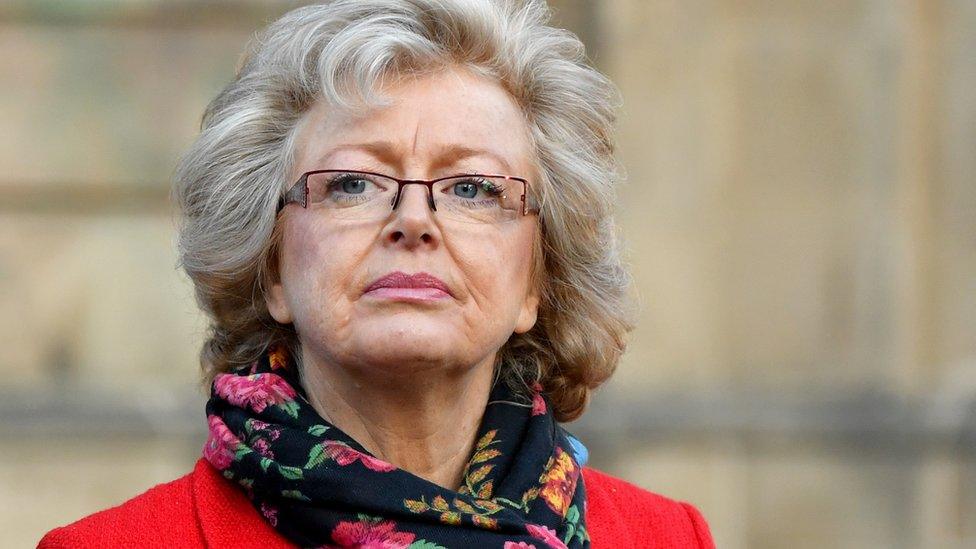
Julie Hambleton spoke after a independent statutory inquiry into the Omagh bombing was announced on Thursday
The sister of a woman killed in the Birmingham pub bombings has called for an immediate statutory public inquiry into the attacks.
Julie Hambleton's sister Maxine was one of 21 people who died in the two explosions on 21 November 1974.
No one has admitted responsibility for the attacks, but it is believed the IRA was behind them.
It comes after an inquiry into the Omagh bombing was announced by the Northern Ireland secretary on Thursday.
Speaking on BBC's Evening Extra programme, Ms Hambleton said "far too many questions" remain unanswered around the Birmingham bombings.
"That is why we call upon the home secretary to immediately take charge of this process and make a decision on giving us our own statutory public inquiry."
Those in the Justice4the21 group started the campaign for a statutory inquiry in 2020 with then home secretary Priti Patel.
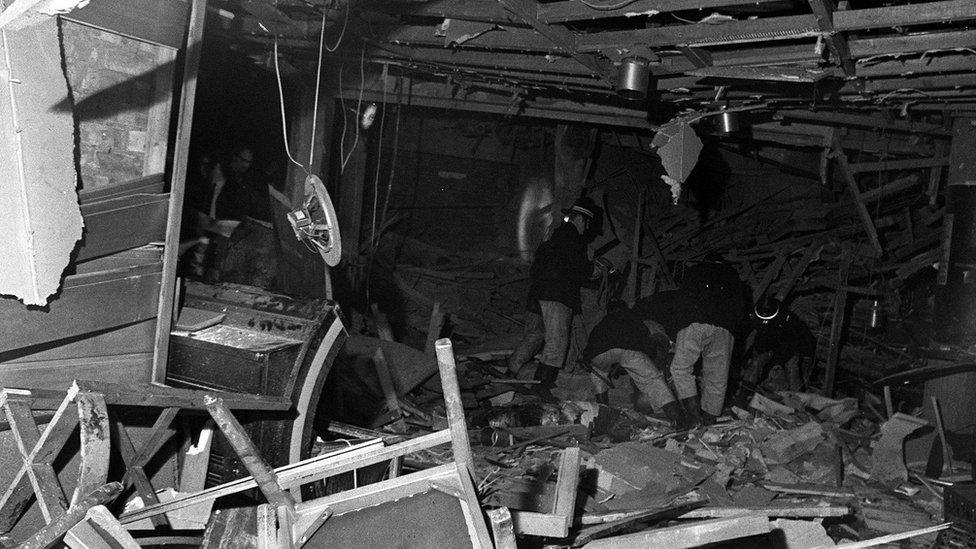
Ten of the people who died in the Birmingham Pub bombings had been at the Mulberry Bush pub
Ms Hambleton said an inquiry would put them in parity with events like the Omagh bombing and Bloody Sunday.
It would also give families the freedom to select who sits on the board, and gain access to some confidential documents surrounding the events.
"It is the only way forward for us to get truth, justice and accountability to be seen to be done," she added.
The Omagh bombing in August 1998 was the single biggest atrocity in the Troubles. Twenty-nine people, including a woman pregnant with twins, were killed.
A High Court ruling in 2021 said there should be an investigation on both sides of the border into whether intelligence information could have prevented the Real IRA attack.
The independent statutory inquiry, announced by Mr Heaton-Harris, would examine this issue along with three others.
These include:
The handling and sharing of intelligence
The use of mobile phone analysis
Whether there was advance knowledge or reasonable means of knowledge of the bomb
Whether disruption operations could or should have been mounted, which may have helped prevent the Real IRA attack
Legacy Bill problems
Criticising the government over its controversial Troubles legacy bill, external, Ms Hambleton said it "wipes away centuries of legislation for murder".
She added that it was "obscene" and every family she knows who have lost a loved one was opposed to it.
The legislation offers a conditional amnesty to people accused of killings committed during the Troubles and before the signing of the Good Friday Agreement, in April 1998.
The UK government proposals have been described as an attempt to draw a line under more than 30 years of conflict in Northern Ireland.
Victims' groups and Northern Ireland political parties are opposed to the bill, arguing it will remove access to justice for victims and their families.
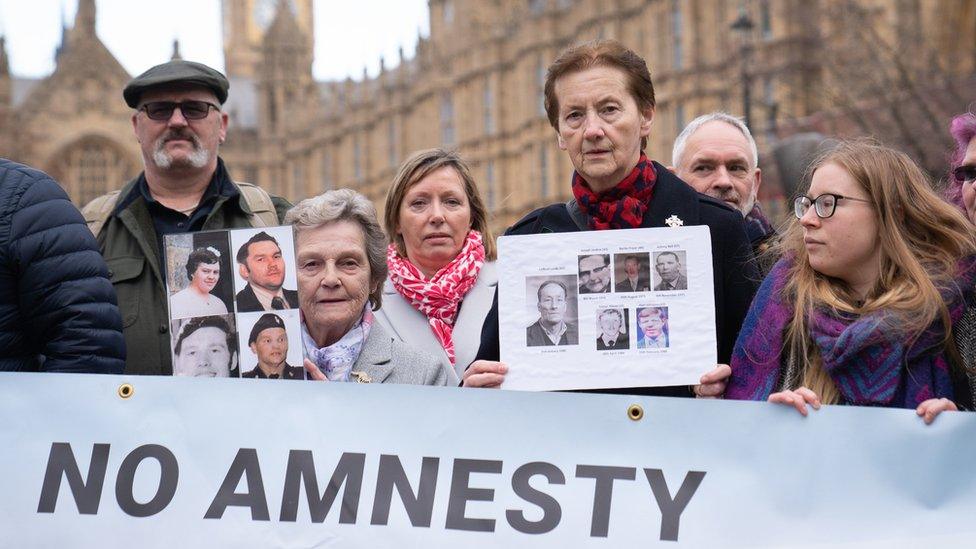
People whose loved ones were killed in the Troubles protested outside the Houses of Parliament on Tuesday
Victims Commissioner Ian Jeffers said the bill raises questions whether those who have lost loved ones will be treated differently.
"It will effectively create the environment where if you've lost a loved one before the Good Friday Agreement/Belfast Agreement, you won't have some of the avenues available to you," he said.
In a statement, the government said it was "committed to dialogue with families of the victims and their representatives".
"As the police investigation into the bombing is ongoing it would not be appropriate to comment further at this time," it added.
- Published2 February 2023

- Published2 February 2023
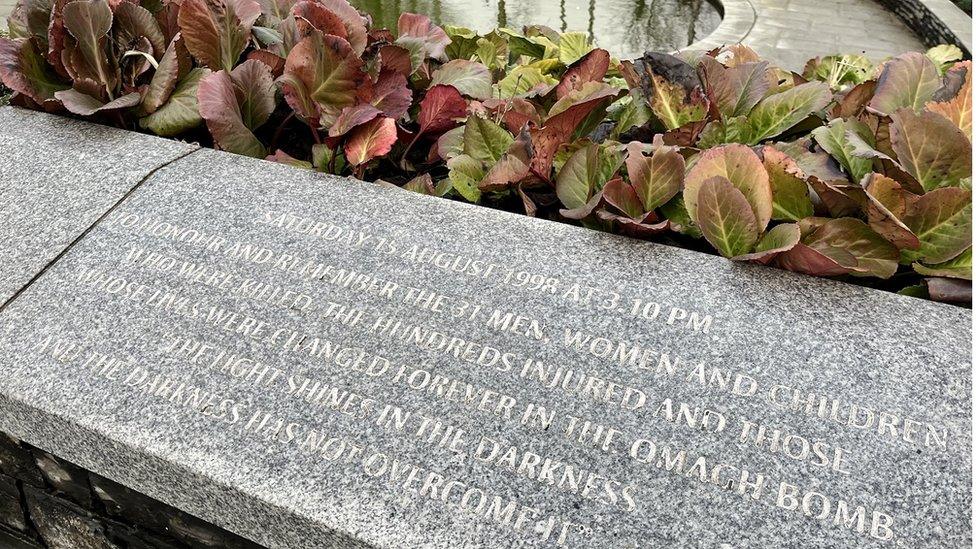
- Published28 January
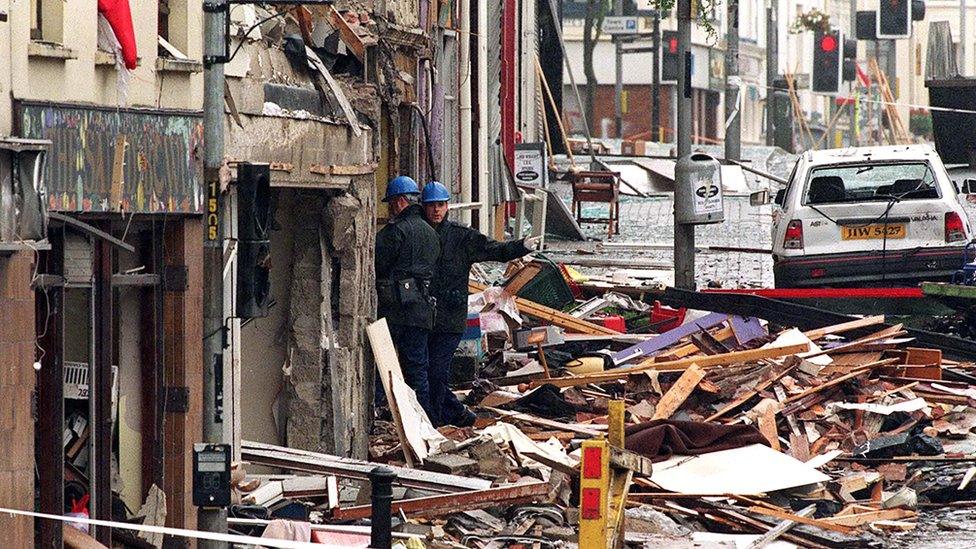
- Published4 July 2022
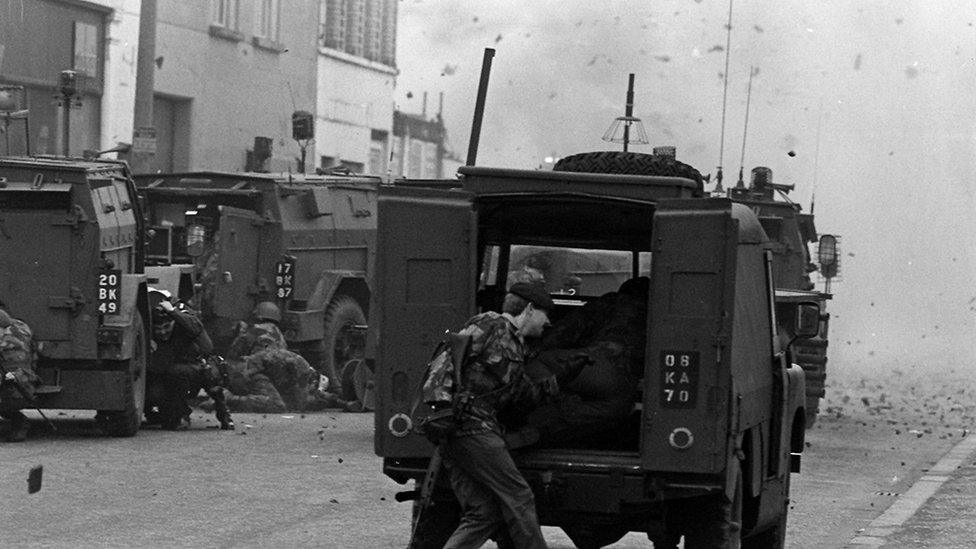
- Published12 March 2019
